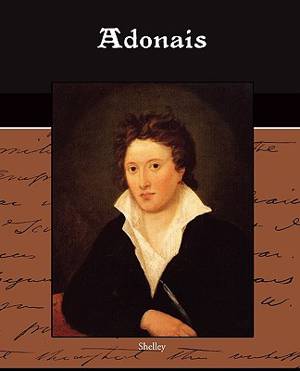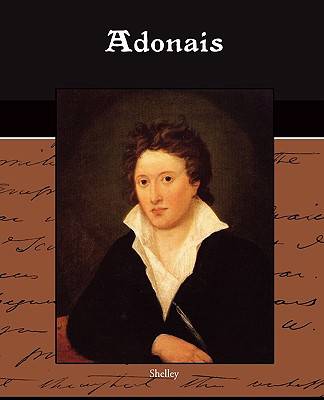
- Afhalen na 1 uur in een winkel met voorraad
- Gratis thuislevering in België vanaf € 30
- Ruim aanbod met 7 miljoen producten
- Afhalen na 1 uur in een winkel met voorraad
- Gratis thuislevering in België vanaf € 30
- Ruim aanbod met 7 miljoen producten
Zoeken
Omschrijving
Percy Bysshe Shelley (1792 - 1822) was a major English Romantic poet who was considered to be the greatest lyric poet in the English language. His major works were long visionary poems including, Alastor, The Revolt of Islam, Prometheus Unbound and the unfinished The Triumph of Life. Shelley was a strong advocate for social justice for the 'lower classes. He witnessed many of the mistreatments occurring in the domestication and slaughtering of animals and he became a fighter for the rights of all living things. Adonais is biographical in relation to Keats and in some aspects autobiographical in regards to Shelley. The full scope of the poem can be divided into three areas, "I. The sense of grievous loss in the death of John Keats the youthful and aspiring poet, cut short as he was approaching his prime; and the instinctive impulse to mourning and desolation. 2. The mythical or symbolic embodiment of the events in the laments of Urania and the Mountain Shepherds, and in the denunciation of the ruthless destroyer of the peace and life of Adonais. 3. The rejection of mourning as one-sided, ignorant, and a reversal of the true estimate of the facts; and a recognition of the eternal destiny of Keats in the world of mind, coupled with the yearning of Shelley to have done with the vain shows of things in this cycle of mortality, and to be at one with Keats in the mansions of the everlasting. Such is the evolution of this Elegy; from mourning to rapture: from a purblind consideration of deathly phenomena to the illumination of the individual spirit which contemplates the eternity of spirit as the universal substance."
Specificaties
Betrokkenen
- Auteur(s):
- Uitgeverij:
Inhoud
- Aantal bladzijden:
- 152
- Taal:
- Engels
Eigenschappen
- Productcode (EAN):
- 9781438531212
- Verschijningsdatum:
- 4/12/2009
- Uitvoering:
- Paperback
- Formaat:
- Trade paperback (VS)
- Afmetingen:
- 190 mm x 235 mm
- Gewicht:
- 272 g

Alleen bij Standaard Boekhandel
+ 48 punten op je klantenkaart van Standaard Boekhandel
Beoordelingen
We publiceren alleen reviews die voldoen aan de voorwaarden voor reviews. Bekijk onze voorwaarden voor reviews.











